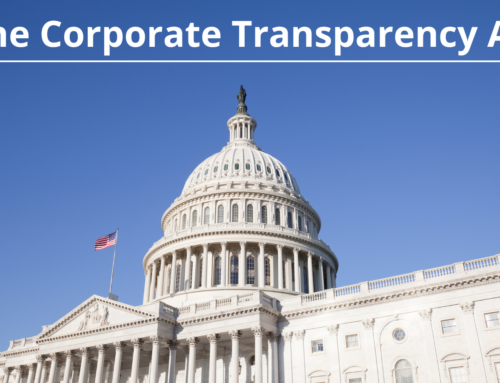It’s time to think about your habits. Not habits like biting your nails or not drinking enough water, but habits that could impact your financial security. Do you delete spam emails? Keep your Social Security number in a safe place? What about your receipts? These are all important factors in preventing financial fraud. Cases of business financial fraud are on the rise, especially for smaller businesses. So what can you do to prevent yourself or your business from falling victim to financial fraud? Keep reading to find out.
General Financial Fraud Prevention
Privacy is an important issue, especially in today’s internet-based society. To keep your data safe, always practice safe internet use. Only shop online from secure web pages (look for a lock icon or “https” in the address bar). It is also important to never share personal information like credit card numbers or your social security number via email. Mail security is also very important. Empty your mailbox regularly and take bill payments and checks to the post office rather than leaving them in your mailbox.
Another important subject when it comes to fraud prevention is being aware of scams. Always be on the defense when it comes to your personal information. Do not give out personal information to telemarketing companies or respond to emails from someone claiming to be your bank, credit card issuer, a government agency, charity or other organization. If you think it may be legitimate, directly contact the company to confirm.
Financial Fraud Prevention for Your Business
Fraud comes in many forms but can be broken down into three categories: asset misappropriation, corruption and financial statement fraud. Asset misappropriation makes up about 90% of studied fraud cases. These are schemes in which an employee steals or exploits the organization’s resources like stealing cash, making false reimbursement claims or taking non-cash assets from the organization. Itis important for any organization, small or large, to have a fraud prevention plan in place. Fortunately, there are many ways you can minimize fraud occurrences:
Know your Employees
Observing employees can help you identify potential fraud risk. Furthermore, it is important for management to be involved with their employees and take time to get to know them. Attitude changes from an employee should cause you to pay attention to that employee. Knowing your employees not only minimizes the chances of fraud, but it can also make an organization a better, more efficient workplace with happier employees.
Employee Awareness & Reporting System
Everyone within the organization should be aware of the fraud risk policy, including types of fraud and the consequences associated with them. Employees should also be made aware of signs of theft or fraud. Setting up an anonymous reporting system can also help protect employees who may be hesitant to report.
Separate Responsibilities
There are a few internal precautions that could prevent your business from financial fraud. The person who pays the bills should not be the person to reconcile the account. Detection of embezzlement is difficult when someone has the knowledge and ability to manipulate financial records and books. The person who does the billing should not also be the person who deposits checks. Separating duties can prevent someone from endorsing checks to themselves and deleting invoices.
Automate Bill Payments
Automating your billing can not only reduce the possibility of fraud but also saves time and money. The person who creates the invoices should not be the one applying payments in the accounting system.
Secure Files
Once documents are entered into an accounting system, they should be securely filed away where they can be retrieved at a later date. It is not only important to securely store the files, but it is essential that security and controls are put into place.
Hire the Experts
When hiring accountants, fraud examiners and other expert professionals who will have access to sensitive company information, it is crucial to ensure these firms or individuals have trustworthy reputations. This is important so you can be sure your business information will not be compromised.
Personal Financial Fraud Prevention
You may find the possibility of a scam compromising your financial accounts or other fraudulent activity unnerving, but there are many ways you can protect yourself. Here are some tips to help reduce your risk:
Know Who’s Asking
It is a general rule of thumb that banks do not send emails or texts asking for personal information like account information and/or social security numbers. Never share login information, tax ID numbers or account information via email or text. Should you need to communicate sensitive information with a bank, use the secure mail within the bank’s online banking platform. If you receive emails that you feel unsure of the authenticity, call to verify before responding.
Keep Your Passwords Secret
Do not share passwords or leave documents that contain access to financial information in an unsecured area. When creating passwords, use a combination of letters, numbers and special characters when possible. Changing your passwords often also provides better protection.
Protect Your Social Security Number
Your Social Security Number is a major target for identity thieves. This gives them access to your credit report and bank account information. Never carry your social security card with you. Instead, memorize the number and keep the card in a secure place at home or a safety deposit box.
Destroy Private Records
Use a paper shredder or tear up credit card statements; ATM, credit or debit card receipts; bank receipts such as deposits or loan solicitations; and other documents that contain private financial information.
Use Online Transactions with Caution
When shopping online, always be sure you are using a secure internet connection and avoid using public Wi-Fi.
Check Your Credit Report
You should obtain and review your credit report at least once a year to look for suspicious activity. Make sure everything is up to date and all accounts are accurate. Be cautious when choosing a site, there are many look-alike sites that charge unnecessary fees. Well-trusted sites include: Equifax, Experian and TransUnion.
Those who commit fraud do not discriminate. It can happen to large or small companies and any person regardless of industry or geographical location. Fraud can result in huge financial loss, legal costs and ruined reputations that can lead to the downfall of a company or individual. Having proper plans in place can significantly reduce fraudulent activity. Hayes and Associates values passion and trust when working with our clients to help prevent financial fraud.





